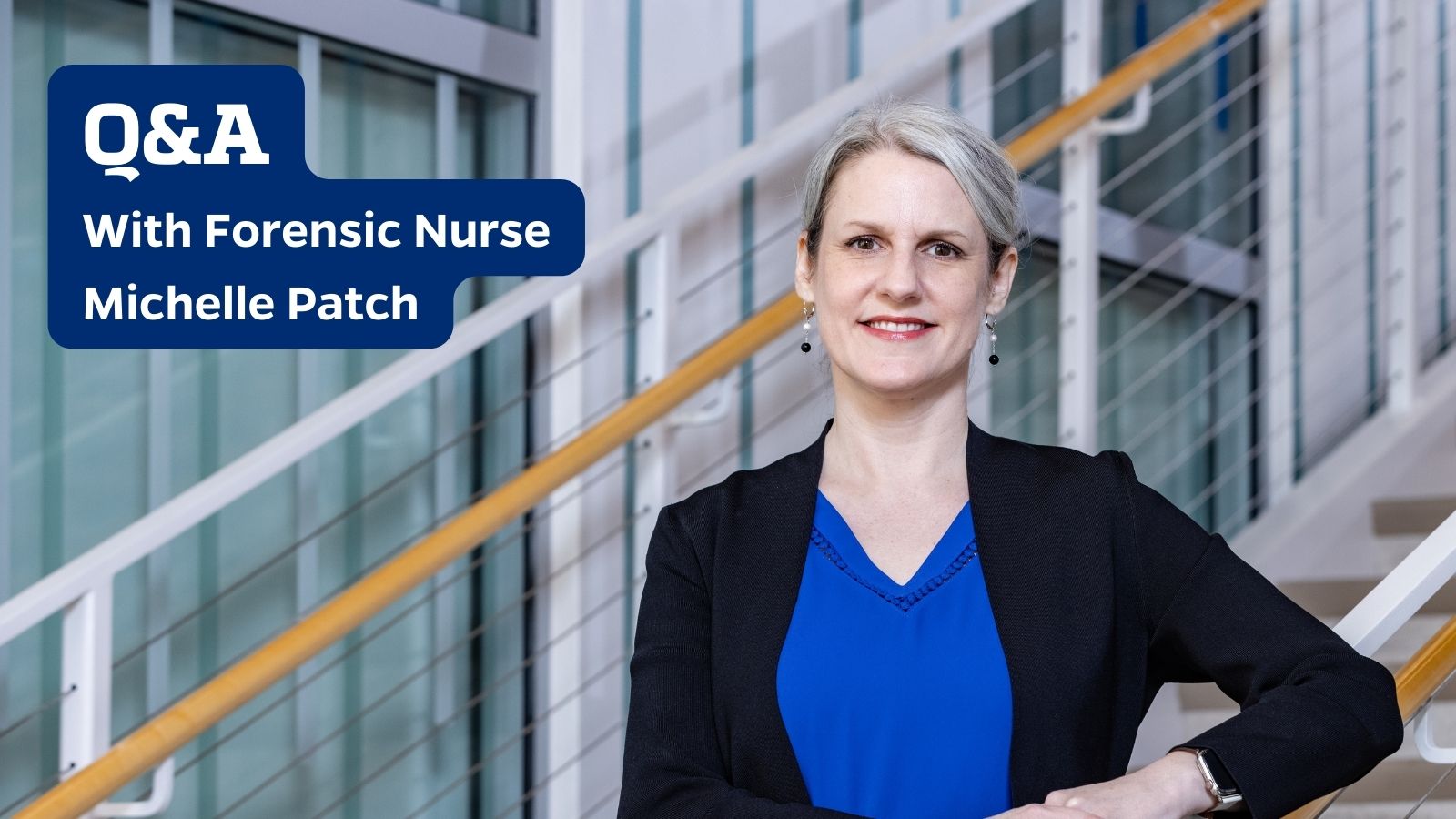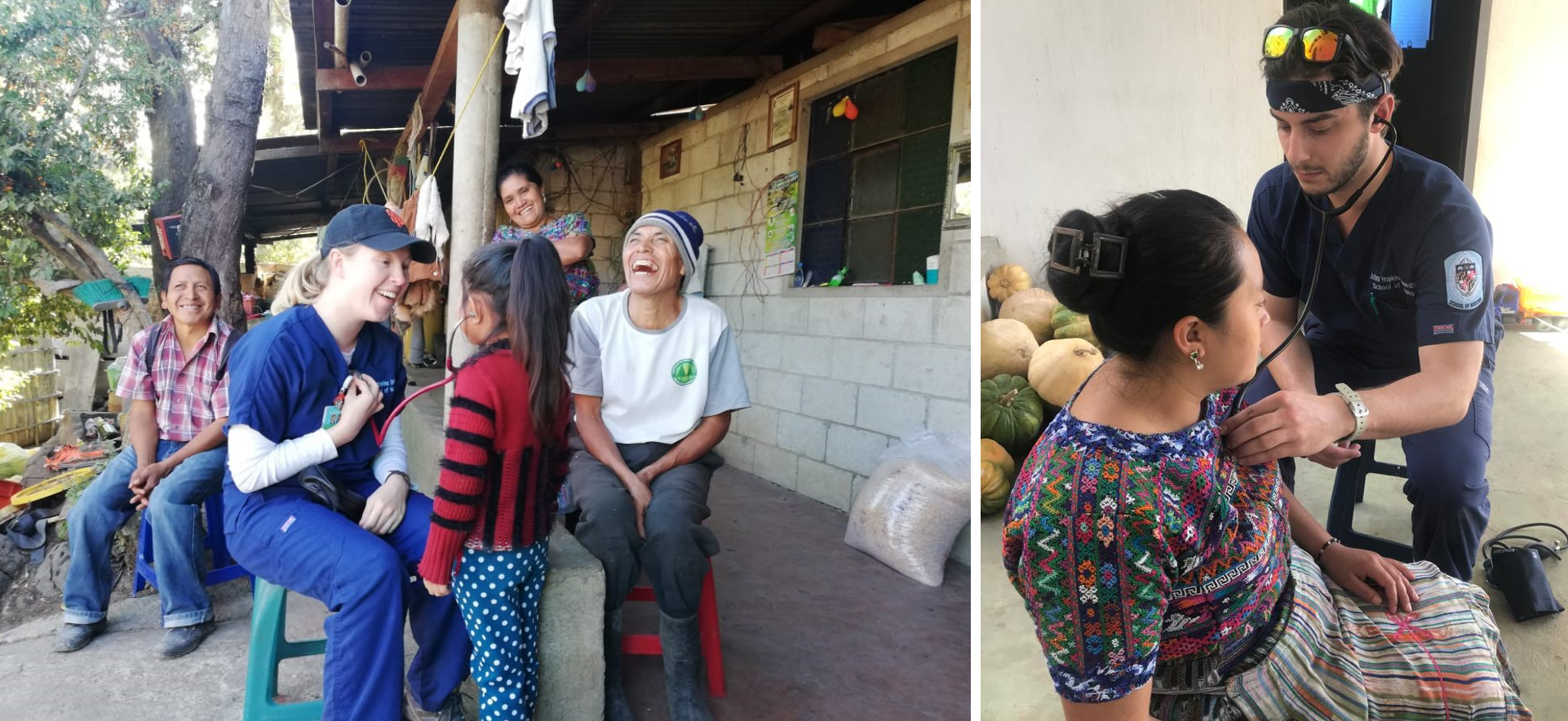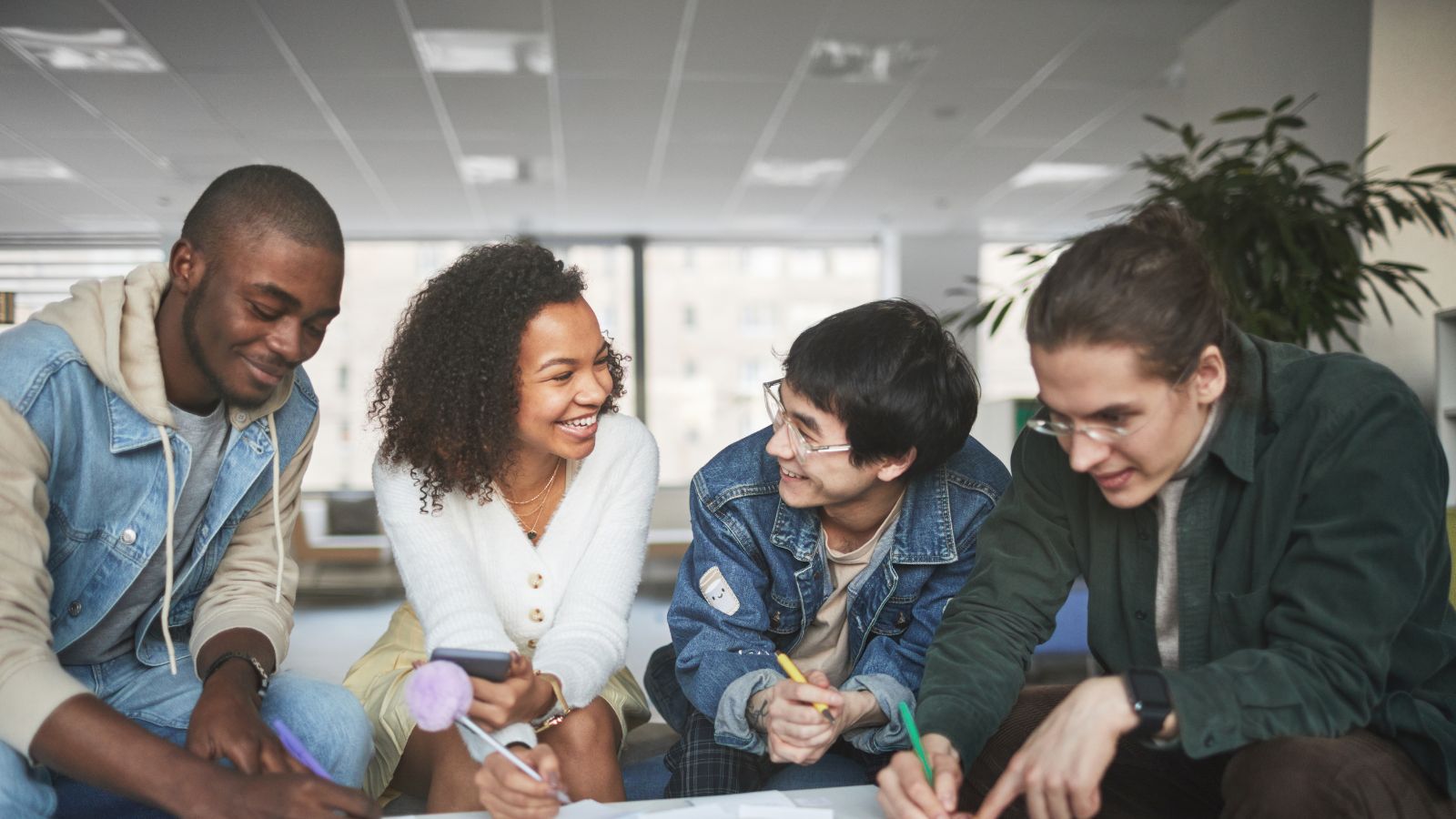PhD students Nadia Andrade (from Brazil) and Owen Smith (from the U.S.) share a mentor in Carmen Alvarez, PhD, CRNP, CNM, FAAN (who is Afro-Latina and a second generation Belizean American immigrant).
If you’ve been following along, Dr. Alvarez and Dr. Yvonne Commodore-Mensah (from Ghana) share a mentor in Bloomberg Distinguished Professor, Dr. Lisa Cooper (from Liberia), and two of Dr. Commodore-Mensah’s mentees are recent grad Dr. Ruth-Alma Turkson-Ocran and PhD student Bunmi Ogungbe.
Mentoring the Next Generation of Black Nurse Researchers
What Makes a Mentor?
If this is beginning to sound like a complex family tree tracing names and ties across an academic diaspora – that’s because it is.
PhD study is a substantial undertaking; we bring our whole selves and culture to it and it’s hard.
What’s more, only 298 Hispanic or Latino people have a PhD in Nursing, of about 7,700 people with a PhD in nursing total. Comparatively 4,914 people with a PhD in Nursing are White, 863 are Black, and 441 are Asian. And although Latino people make up 18.5 percent of the U.S. population, representing the largest racial/ethnic minority, there is much work to be done regarding the quality of data and development of programs serving Latino communities.
“The PhD is a journey that extends you in many different ways,” says Dr. Alvarez. That’s why it’s beyond valuable to have someone in your corner whose own life experience helps support diverse students on an unprecedented journey. “I see myself as a guide, someone who guides my mentees in research, supports them in any way possible, and is their cheerleader.”
Meet Dr. Alvarez and her mentees: Nadia Andrade, fifth year PhD student, and Owen Smith, second year PhD student.
“Carmen helped me manage my expectations and my mental health, especially during COVID.”
“Carmen helped me manage my expectations and my mental health, especially during COVID,” says Nadia Andrade. She is in her fifth year of the PhD program while also working full time as a nurse practitioner, but came in with the ambition to complete the program in three years – before the COVID-19 curveball.
Volunteer nursing in crisis
Nadia spent about 12 weeks volunteering in New York when the city was a major hotspot in the early days of the pandemic. Her hospital, Maimonides Medical Center in Brooklyn, primarily served a Hasidic Jewish community; she worked in an ICU step-down unit with patients who were still on ventilators. “Early on a rabbi died of COVID and a lot of people went to the funeral, which led to a major outbreak,” she says. It was one of the hardest-hit hospitals.
Now she’s back to work as a nurse practitioner in the ICU at York Hospital in Pennsylvania (just across the Maryland border). She is again immersed in her research, which explores how exposure to discrimination impacts a Latino person’s allostatic load, which is the physical and mental stress that results in chronic disease like anxiety, depression, hypertension, and more. “It’s novel because Latino people haven’t been included in much discrimination research to date,” Nadia says.
“A good mentor wants to see you succeed in all areas of your life, not just research.”
But as an ICU nurse practitioner, the COVID trauma lingers. “After dealing with so much death, I can’t always find the time and mental space to write a quantitative analysis heavy dissertation, or sit in front of a computer and run data analysis,” Nadia says. “A good mentor wants to see you succeed in all areas of your life, not just research. Carmen has really helped ground me in the moments I am overwhelmed.”
Taking on the gaps in bilingual-Spanish mental health
“A lot of times we get caught up in medicine for patients and more recently in also addressing their non-medical needs also known as the social determinants of health,” says Dr. Alvarez. “Often with men we forget about the importance of emotional support for their well-being.”
A Journey of Healing and Forgiveness
Since earning his BSN from Johns Hopkins School of Nursing in 2014, Owen Smith predominantly served Spanish-speaking and HIV positive immigrant male populations, often in a community health context. He was trained to provide care, but not to address his patients’ mental health and substance use—he learned to out of necessity on the job.
“We need to generate knowledge about mental health support and ensure it is culturally competent for Spanish-speaking men with HIV.”
“We need to generate knowledge and develop interventions for mental health, and ensure that it is bilingual and culturally competent for Spanish-speaking men with HIV,” Owen says. COVID has only increased his resolve about how important it is to enhance these services. “We’ve seen more relapses. Spanish-speaking communities have been disproportionally impacted by COVID, and many of our bilingual staff working in HIV care, who are already small in number, have been asked to take on additional roles responding to COVID cases, testing, and assisting with vaccination clinics. It has put a lot of strain on these bilingual staff members and has highlighted just how important it is that we develop our multilingual workforce to better serve our patients and community.
Now entering the second year of the program, Owen is grateful for Dr. Alvarez’s experience and guidance. “I was so excited to find out Dr. Alvarez has twins!” He and his wife have twins and his wife just delivered their third child in September 2021. They moved in with his in-laws while he does the program and he’s happy to raise their children in a Spanish-speaking household.
Back in the research context, Owen appreciates Dr. Alvarez’s reassurance in difficult moments. “My experiences brought me to this work, but as a White, cis-gender male I sometimes feel I’m not the right person for the job. She encourages me to keep going, to pursue the work I’m passionate about.”
“The work needs to be done,” agrees Dr. Alvarez.
“If you’re guiding someone you have to have something to work with and Nadia and Owen have passion, intellect, and practice.”
“If you’re guiding someone you have to have something to work with and Nadia and Owen have passion, intellect, and practice,” Dr. Alvarez says of her mentees.
“Nadia’s work disaggregating data is so important because to date we’ve studied Spanish speaking and Latino people as a monolith and we’re not,” she continues. “And her work on the front lines is so inspiring, she’s an example of how we continue to have impact well beyond the PhD.”
It’s still early in Owen’s research career, but Dr. Alvarez sees so much on the horizon. “His work will tell us a lot about how to provide holistic care for our patients, and remind us that holistic care needs to include emotional support.”



 Forging Policy: How Can Doulas Improve Black Maternal Health?
Forging Policy: How Can Doulas Improve Black Maternal Health? Global Service Learning: Guatemala
Global Service Learning: Guatemala Q & A With Forensic Nurse, Michelle Patch
Q & A With Forensic Nurse, Michelle Patch Guatemala Re-visited: Rainwater Project Shows Value of Service-learning Trips
Guatemala Re-visited: Rainwater Project Shows Value of Service-learning Trips You’re Welcome
You’re Welcome





